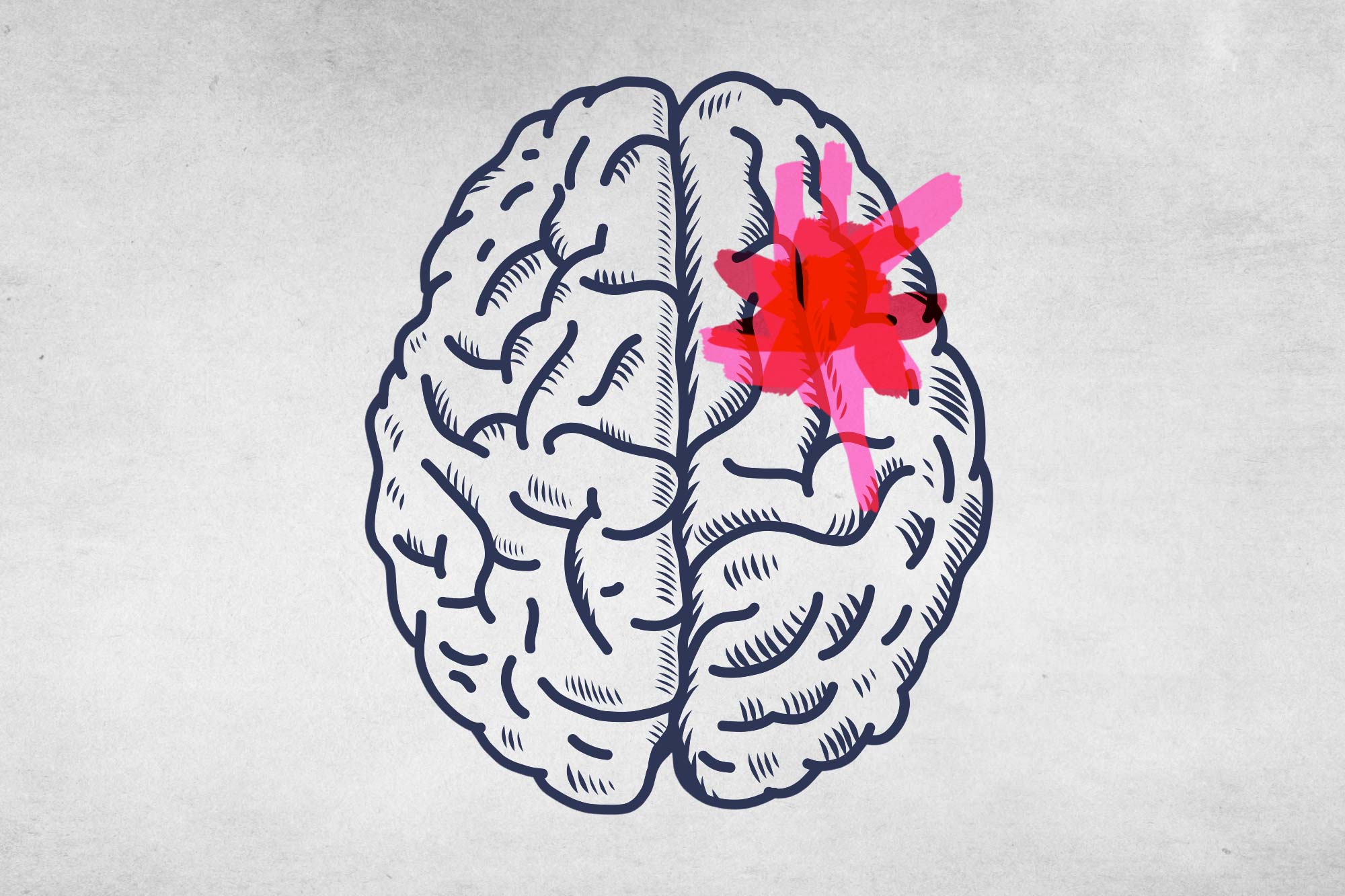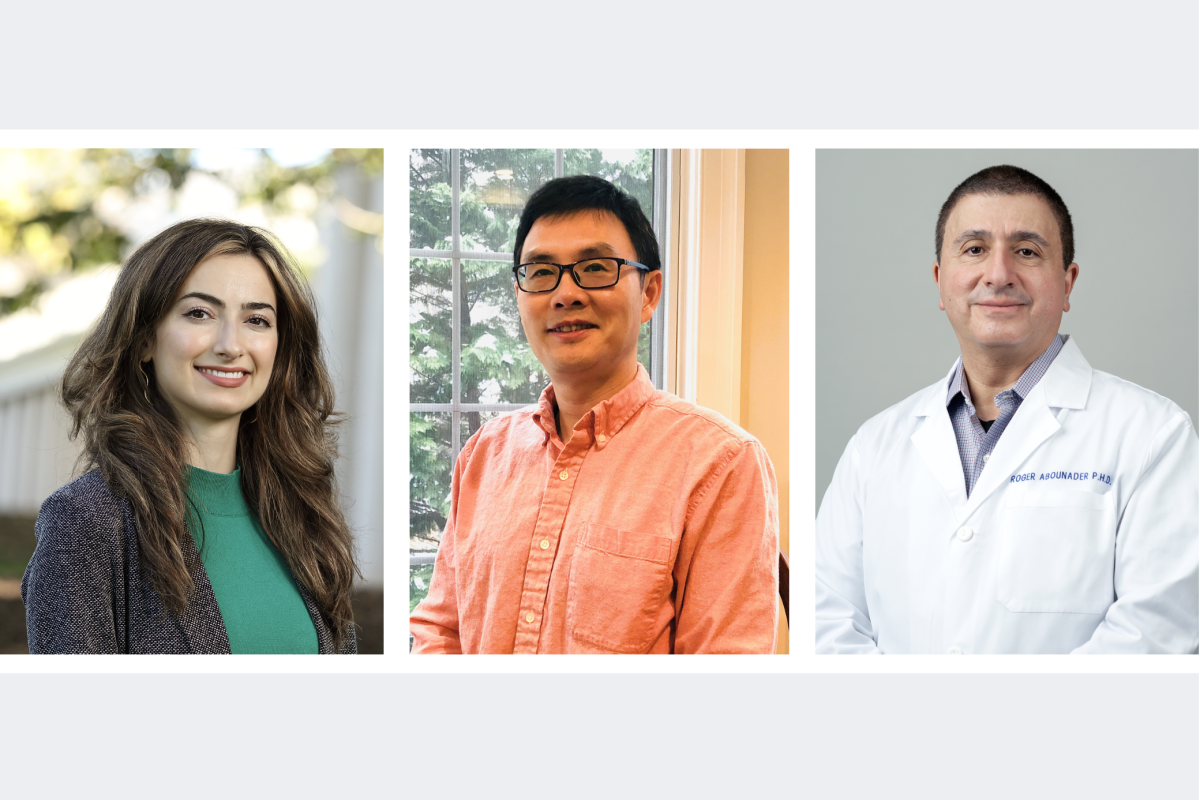Investment of Confidence
The Ben and Catherine Ivy Foundation is one of the largest private funders of research into glioblastoma multiforme (GBM)—the most common and deadliest adult brain tumor. Currently, there is no cure, and traditional cancer treatments—surgery, chemotherapy, and radiation—do little to improve the prognosis or quality of life of GBM patients, whose approximate life expectancy is 15 months. Since its inception in 2005, the foundation has invested over $135 million in high-risk, high-reward science that may dramatically improve GBM diagnosis and treatment. The foundation's awards are vital fuel in a race against time for patients with this incurable disease. They’re also a testament to the potential impact of the chosen projects and investigators.
Each year, top-tier scientists worldwide apply to the Ben and Catherine Ivy Foundation for grants to support their work. In 2023, the applicants included three UVA Cancer Center researchers: Natasha Sheybani, PhD, an assistant professor of biomedical engineering; Hui Li, PhD, a Harrison Distinguished Professor of Pathology; and Roger Abounader, MD, PhD, a professor of microbiology, immunology & cancer biology. All three received awards—a rare success rate for a single institution. Sheybani, Li, and Abounader each received the $600,0000 Translational Adult Glioma Award.
Catherine Ivy said, "We are pleased to support the work of the talented scientists and clinicians at UVA Cancer Center, whose work will aid in the mission to find a cure for the devastating disease of glioblastoma. Their innovative research will contribute to the identification of drug strategies to be studied in the Ivy Brain Tumor Center’s early-phase pharmacodynamic- and pharmacokinetic-driven clinical trials."
Abounader, the Arthur and Margaret Ebbert Endowed Chair of Medical Science and UVA Cancer Center’s associated director of basic science, says, “The award of three prestigious Ivy Foundation grants to three UVA investigators is evidence of the world-class cancer research ongoing at UVA with support from UVA Cancer Center—a National Cancer Institute-designated Comprehensive Cancer Center.”

An Emerging Leader in Focused Ultrasound Immunotherapy
Sheybani’s award will support her research using focused ultrasound (FUS) technology to facilitate chimeric antigen receptor (CAR) T-cell therapy for GBM. CAR T-cell therapy is a precision immunotherapy in which a patient’s T cells (a type of white blood cell) are genetically supercharged to find and destroy cancer. This revolutionary immunotherapy has been FDA-approved to treat certain blood cancers. It's more limited, however, as a tool against solid tumors, which are more challenging for immunotherapeutic agents to find, penetrate, and overcome.
GBM presents a particular challenge for immunotherapies like CAR T-cell because of the blood-brain barrier and other complexities. That’s where UVA’s expertise in medical imaging and FUS is showing promise.
At UVA’s Focused Ultrasound Cancer Immunotherapy Center—the first in the world—scientists are using MRI (magnetic resonance imaging) to guide the deposition of FUS acoustic energy on solid tumor targets to make them more conducive to immunotherapies. Sheybani is the center’s research director. She is renowned for her pioneering work in this area, including as UVA’s first recipient of a prestigious National Institutes of Health (NIH) Director’s Early Independence Award. Her graduate work on image-guided FUS to treat metastatic breast cancer—conducted in the lab of Richard Price, co-director of UVA’s Focused Ultrasound Immunotherapy Center and the Lawrence R. Quarles Professor of Engineering & Applied Science—has already translated into a clinical trial at UVA Cancer Center. With this new research, Sheybani says the hope is to showcase the promise of FUS for making GBM immunotherapies more effective and less toxic.
Sheybani says, “This research is the first, to our knowledge, to study the effects of FUS in combination with CAR T cells targeted to B7-H3, an immune checkpoint protein overexpressed across many solid tumor types. She expects the findings to generate insights that are directly relevant for clinical translation and hold broad implications for other solid tumor types beyond GBM.
Support for Preclinical Studies
Li’s award will fund research into small-molecule treatments targeting AVIL—a cancer-causing gene (oncogene) of GBM. He and his team discovered AVIL’s connection to GBM in 2020 in what was heralded as one of the year’s most significant biomedical discoveries by the editors of the health news site STAT. Since then, Li and his team have found AVIL malfunctioning to be a substantial driver of two types of rhabdomyosarcoma, a cancer of the soft tissue primarily striking young children. Li’s lab has received NIH funding to further analyze AVIL’s underlying mechanisms and activation with the goal of developing treatments to block or inhibit it.
Meanwhile, in collaboration with a medicinal chemist, the Li lab has developed novel chemical compounds to target AVIL activity. The foundation's grant will allow experimental testing of these compounds in preclinical animal models—an essential step toward clinical trials of a potential new treatment for GBM patients.
“Private grants like this are critical for us to conduct high-risk but potentially high-reward research—the kind that may not fare well in a traditional funding mechanism,” says Li. In this case, the lab is aggressively testing first-in-class compounds in several models simultaneously. “Due to the severity of GBM and urgency to push forward, we are leaping ahead instead of taking the traditional step-by-step approach,” he says.
Abounader’s award will fund his research into GBM treatment strategies that involve microRNAs—a type of RNA (ribonucleic acid) found in cells that control gene expression. Abounader and his team have identified several microRNAs connected to GBM that showed anti-tumor effects in vitro. The foundation's grant will allow his lab to develop and test the therapeutic delivery of these microRNAs to inhibit GBM growth. One of the therapy delivery systems they plan to investigate includes using brain-penetrating nanoparticles with the assistance of FUS. As with Sheybani’s and Li’s awards, Abounader’s grant will facilitate progress toward new experimental treatments for patients with GBM.
Committed to a Cure
For Catherine Ivy, director of the foundation, supporting UVA Cancer Center's leading-edge GBM research is as much an investment of confidence as it is personal. Her husband, Ben, was diagnosed with GBM in August 2005 and passed away four months later. She explained on the foundation’s website: "His suffering and our sudden awareness of the lack of options to fight this disease motivated me to find better diagnostics and to develop therapies to alleviate the debilitating effects patients with brain tumors have to endure."
Of course, the ultimate goal for the Ben and Catherine Ivy Foundation and UVA Cancer Center’s dedicated scientists and clinicians is a cure. Each project funded brings them one step closer to a day when no patients or families have to confront the fatal sentence faced by Ben and approximately 15,000 adults diagnosed annually with GBM.
“We are dedicated to this effort because funding leads to answers, and answers lead to hope,” says Ivy on the foundation’s website.
To learn more about UVA Comprehensive Cancer Center’s groundbreaking research programs, please contact Corley Raileanu, Executive Director of Development, Cancer Programs, at corley@virginia.edu or 434-243-3480 or call 800.297.0102.

